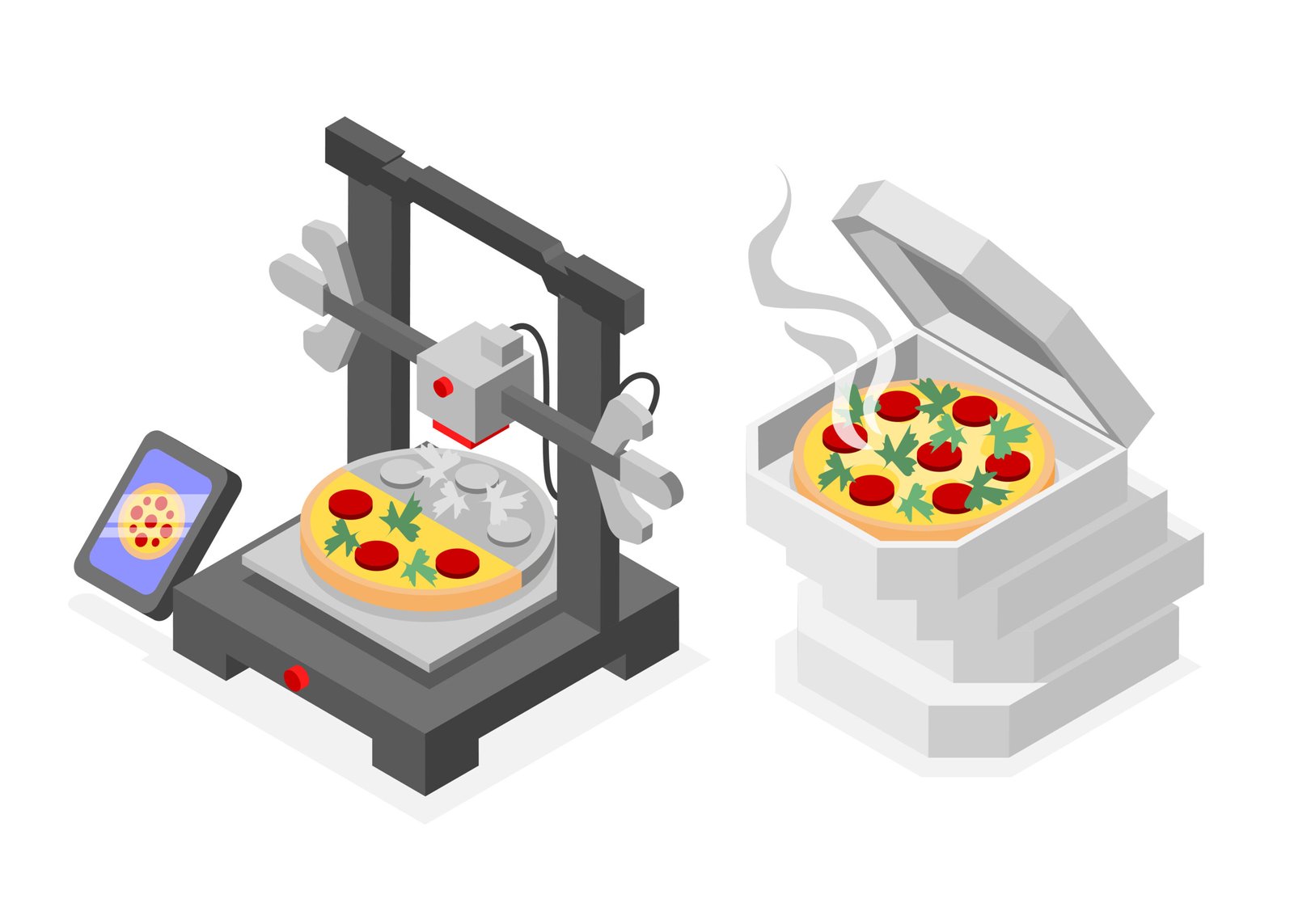Unlocking Dubai’s Food Potential with 3D Printing
DDubai, known for its innovation-driven economy and forward-thinking approach, has embraced 3D printing technology across various industries, including the food sector.
This cutting-edge technology offers numerous advantages that revolutionize food production, customization, and sustainability. This comprehensive overview will delve into the key benefits of integrating 3D printing into Dubai’s vibrant food industry.
benefits of integrating 3D printing into Dubai’s food industry

Precision and Customization
One of the primary advantages of 3D printing in the food sector is its ability to achieve precise and customizable designs. With 3D printing, chefs and food manufacturers in Dubai can create intricate shapes, textures, and patterns that would be challenging to replicate using traditional methods.
Whether crafting personalized confections or designing elaborate garnishes, 3D printing Dubai enables unparalleled precision and customization, catering to diverse culinary preferences and dietary restrictions.
Enhanced Creativity and Innovation
3D printing technology fosters creativity and innovation in Dubai’s food sector by providing chefs and culinary experts with a versatile canvas for experimentation.
By leveraging advanced software and additive manufacturing techniques, chefs can push the boundaries of culinary artistry, inventing novel dishes and culinary experiences that captivate diners’ senses. From whimsical food sculptures to avant-garde gastronomic creations, 3D printing fuels a culture of innovation and gastronomic exploration in Dubai’s vibrant culinary scene.
Efficient Production and Time Savings
In Dubai’s bustling food industry, efficiency and time management are paramount. 3D printing streamlines the production process by automating intricate tasks and minimizing manual labour, accelerating food preparation and service.
Unlike traditional methods that require extensive handcrafting, 3D printers can fabricate complex food items with minimal human intervention, saving valuable time and resources for food establishments in Dubai, whether they’re restaurants, bakeries, or catering services.
Waste Reduction and Sustainability
Sustainability is a growing concern in Dubai’s food sector, and 3D printing offers promising solutions to minimize waste and environmental impact.
3D printers can minimize food waste and resource consumption by precisely controlling ingredient proportions and optimising production processes, aligning with Dubai’s sustainability goals and eco-conscious consumer preferences.
Additionally, 3D printing enables alternative ingredients and sustainable food sources, opening new avenues for environmentally friendly food production practices in Dubai.
Improved Food Safety and Hygiene
Ensuring food safety and hygiene is paramount in Dubai’s food industry, and 3D printing technology can enhance compliance with rigorous quality standards and regulations. With its controlled production environment and sterile printing conditions, 3D printing minimizes the risk of cross-contamination and foodborne illnesses, safeguarding consumer health and confidence.
Moreover, 3D printing facilitates precise portion control and ingredient traceability, enabling food establishments in Dubai to uphold the highest safety and hygiene standards throughout the production process.
Accessibility and Inclusivity
3D printing democratizes access to culinary experiences and addresses dietary restrictions and preferences with greater flexibility and inclusivity.
In Dubai’s diverse and cosmopolitan food scene, 3D printing enables chefs to cater to various dietary requirements, including gluten-free, vegan, and allergen-free diets, without compromising taste or quality.
By offering customizable food options, 3D printing promotes inclusivity and ensures everyone can enjoy delicious and nutritious meals tailored to their needs and preferences.
Economic Benefits and Cost Efficiency
While initial investments in 3D printing technology may be significant, the long-term economic benefits for Dubai’s food sector are substantial.
3D printing enables food establishments to optimize ingredient utilization, reduce production costs, and minimize operational expenses associated with traditional food manufacturing processes.
Moreover, 3D printing facilitates inventory management and on-demand production, eliminating the need for large-scale food storage and reducing inventory waste, thereby enhancing cost efficiency and profitability for businesses in Dubai.
Culinary Education and Skill Development
Integrating 3D printing into Dubai’s culinary education curriculum fosters skill development and prepares the next generation of chefs and food technologists for future industry trends.
By incorporating 3D printing into culinary training programs and vocational courses, Dubai’s aspiring culinary professionals gain hands-on experience with innovative food technologies, honing their creativity, technical proficiency, and adaptability in an evolving gastronomic landscape.
Collaboration between culinary schools and 3D printing experts also cultivates interdisciplinary knowledge exchange and promotes continuous learning and innovation within Dubai’s food industry.
Conclusion
In conclusion, 3D printing technology holds immense potential to revolutionize Dubai’s food sector, offering many benefits that enhance precision, creativity, efficiency, sustainability, and inclusivity. By embracing 3D printing, Dubai’s food establishments can elevate culinary experiences, meet evolving consumer demands, and drive innovation in a dynamic and competitive market landscape.
As technology advances and adoption rates increase, 3D printing is poised to reshape the future of food production and consumption in Dubai, paving the way for a more sustainable, diverse, and delicious culinary future.

















